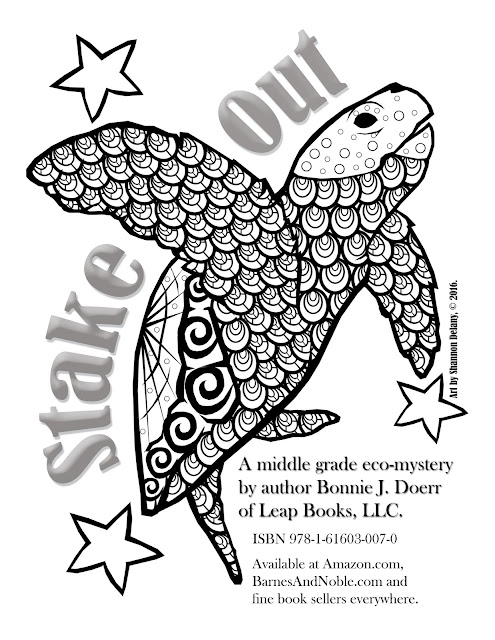We recently invited award-winning Leap author Bonnie J. Doerr to share her thoughts on Earth Day with our readers. Bonnie's a passionate conservationist and an author with an amazingly generous heart. Her MG novels about adventurous teens helping rescue endangered species will soon be joined
by an exciting new novel called Tangled Lines. And it's because of Bonnie's devotion to our world's environment that we asked her to write this post.
by an exciting new novel called Tangled Lines. And it's because of Bonnie's devotion to our world's environment that we asked her to write this post.
Earth Day elicits mixed feelings for me. While it’s uplifting to see and hear people the world over appreciating the wonders of nature and the importance of protecting our environment, it’s sad that we designate one day to remind ourselves of what should be obvious every day. We depend on the environment for our existence. But we have become increasingly separated from nature, living a plugged-in life inside four walls, within cities made of boxes stacked side by side and on top of each other, rarely considering the source of our sustenance.
This boxed-in life leads to nature deficit disorder, a term coined by Richard Louv in Last Child in the Woods. One deficiency of this disorder is a careless environmental attitude. If a child never experiences wonder at a seed’s transformation into a living plant, never truly sees it grow to provide food, raw materials for shelter or clothing; if he never contemplates the source of oxygen while breathing forest air or experiences the sensation of wading in a creek, or swimming in a lake or ocean; if she never touches, sees, smells, or hears the flora and fauna that provide food, energy, and fertilizer to sustain life... Well, truth is, if a child doesn’t interact and connect with nature, how can we expect him to care about the environment? To a child living inside four walls his environment may be fine. Especially if he controls it with a thermostat. Ecology? Conservation? Meh.
I combine my ecological passion and love of adventure to write about teens who don’t spend all day in a box. They experience wild outdoor adventures. Like many teens, they have family, school, and friendship problems. They can’t often control trouble in their own lives, but they boldly fight to protect wildlife and their local environment.
I write with the hope that my characters’ appreciation for nature will slyly leak from eagerly turned pages onto the skin and into the hearts of my readers—that they, like my characters, will realize their power and use it to protect and create a healthy, enriching, and sustainable environment.
Find out more about Bonnie's books and her mission at her blog.





















